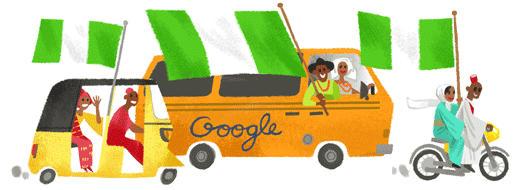All the heads of state in the political history of Nigeria make a public display of their religions and like the millions of their fellow Nigerians want to be seen going to church or the mosque and going on pilgrimages to Jerusalem and Mecca. But their lifestyles are contrary to the commandments of God they claim to believe as Christians and Muslims. From the predecessors to their successor, they have all been hypocrites, fooling and misleading the populace in conceit and deceit.
Section 10 of our 1999 constitution clearly prohibits Federal and state governments from adopting any state religion, because the Federal Constitution says Nigeria is a secular state. But every government has violated this rule by sponsoring either Christianity or Islam and using these two religions for their political pursuits and caused the political dichotomy between the predominantly Muslim north and predominantly Christian south.
That is why you see a Muslim presidential candidate telling his fellow Muslims in the north never to vote for a Christian presidential candidate. And the Christian presidential candidate telling his fellow Christians in the south never to vote for a Muslim presidential candidate. And thus provoking the religious and tribal bigotry destroying lives and properties in Nigeria today.
Their violation of the Federal Constitution is enough for their disqualification from contesting in any election. But the equally hypocritical and incompetent leadership of the so called independent electoral body continues to approve these unqualified political leaders to contest in elections for public office and end up being complicit in the political violence of religious and tribal bigotry.
These political contractors and political opportunists use the name of God in their respective religions to do more harm than good to Nigeria.
But heaven knows that they don't fear God at all.
The problem of the political leaders of Nigeria since the independence of the country on October 1, 1960 to date is lack of the fear of God.
Many of those who have been heads of state lacked the fear of God in truth and in spirit and the present head of state is not different from them.
The fear of God is not determined by mere claims of being a Christian or Muslim, going to the church or mosque and going on pilgrimage to Jerusalem or Mecca, but by obeying the commandments of God. And anyone who fears God will not disobey Him.
You cannot handover the maritime security of Nigeria to cultists who have been running the oligarchy with the corrupt ruling class and then expect to please God.
You cannot cheat and lie to win elections and expect God to bless you.
You may kneel down a thousand times before pastors and bishops to pray for you, but you still continue to dine and wine with the devil and his errand boys from the Niger Delta to Lake Chad and make well written national speeches; but until you stop to dine and wine with cultists and share billion naira contracts with them, you are fooling yourself, because you cannot fool God.
God does not answer the prayers of unrepentant liars.
God does not answer the prayers of unrepentant idolators.
God does not answer the prayers of unrepentant adulterers.
God does not answer the prayers of unrepentant political gluttons whose avarice feeds the Cockatrice of terrorism destroying thousands of lives in Nigeria.
When a man’s ways please the Lord, He makes his enemies to be at peace with him.
~ (Proverbs 16:7)
Therefore whether we are here in this body or away from this body, our goal is to please him.
~ 2 Corinthians 5:9 (NLT)
~ By Ekenyerengozi Michael Chima, aka "Orikinla Osinachi", Publisher/Editor of Nigerians Report Online, author of Children of Heaven, Scarlet Tears of London, The Language of True Love, Bye, Bye Zimbabwe, In the House of Dogs, The Prophet Lied, Diary of the Memory Keeper, NOLLYWOOD MIRROR® and other books in print and electronic versions distributed by Amazon, Barnes & Noble, Lulu, Tower Books and other booksellers worldwide. He has been a former aide in the publicity department of the Alhaji Bamanga Tukur's Presidential Campaign in 1990 and now coordinating the Transform Nigeria Network in the social media.
Tweet






















